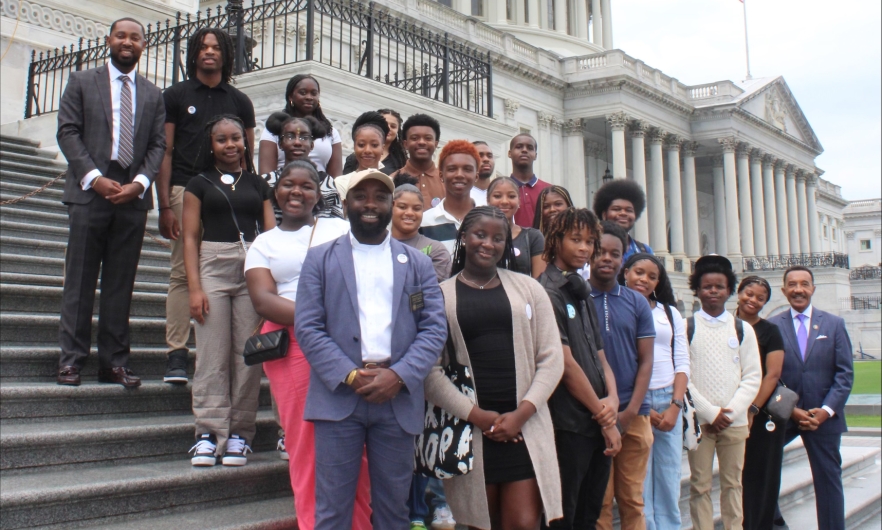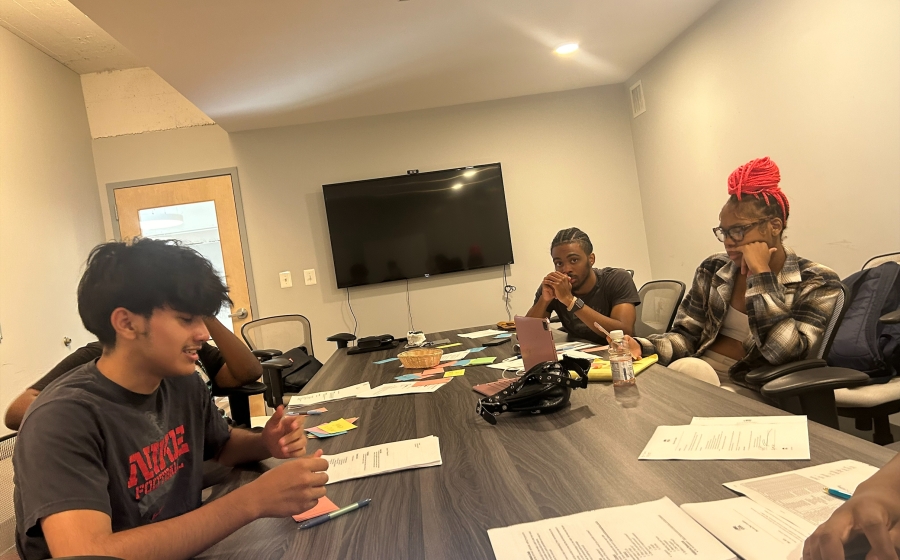Empowering Youth to Lead: CLIA's Impact on Baltimore's Youth

In 2021, Rashad Staton, a 2018 Bunting Neighborhood Leadership Fellow, and current executive director of Community Law in Action (CLIA) began a unique partnership with Tamar Mendelson, PhD, the Bloomberg Professor of American Health and director of the Center for Adolescent Health at the Johns Hopkins Bloomberg School of Public Health and the Baltimore City Local Health Improvement Coalition. With the support of the 2021 Strategic Consultation Grant from the Johns Hopkins Urban Health Institute, the collaborative developed “CLIA’s Youth and Adult Partnerships,” to provide committees and programs with tools and best practices to inclusively involve young people in leadership for Baltimore City.
CLIA was founded in 1998 to teach young people aged 14-24 in Baltimore about law and train them to advocate for ways to improve their communities. The organization offers opportunities for young people to serve on its Youth Advisory Council, experience job shadowing, and participate in a 6-week Summer Leadership Institute.
Staton, a former Baltimore City Youth Commissioner shared how his experiences have influenced this partnership. "As a service-minded young person, I wanted to be a part of the solutions when everybody else was saying that it was my peers who were the problem -- the cause of the uprising."
“Our goal is to make sure that our young people are part of the same tables that we are at as an organization,” Staton said. The UHI’s Strategic Consultation grant has allowed them to do just that. Rashad also emphasized the need to pay the youth and acknowledge them as “valuable stakeholders who provide valuable input to things that matter to themselves, their community, and Baltimore at large.”

Through the grant, CLIA was able to expand its partnerships, connecting with the Baltimore City Health Department’s Local Health Improvement Coalition (LHIC). At the time, the LHIC was looking forward to collaborating with community-based organizations to address the need for youth involvement in developing healthy programs for the city.
"We value age diversity, recognizing that engaging individuals from all age groups enriches our initiatives and strengthens the community," said Stephane Bertrand, LHIC Program Coordinator.
The LHIC collaboration helped CLIA create a space for young people by offering free training programs to teach young people how to effectively navigate professional meetings while maintaining mindfulness and asserting their voices. Bertrand stated, "By involving youth, we gain fresh perspectives and innovative ideas, while older participants contribute invaluable experience and wisdom." Additionally, the training prepared the youth to effectively tackle community issues using the appropriate terminology. In parallel, training sessions for adults have been implemented to help better engage and collaborate with young people while respecting their thoughts and opinions.
The first phase of the program has given young people important tools to help communicate their perspectives and recommendations effectively to city leaders. Dr. Mendelson was eager to support this project and shared that “our city urgently needs young people's input to help solve the problems that affect youth and families so that all Baltimore residents can thrive."
Staton and Dr. Mendelson are actively exploring ways to advance youth inclusion within a framework of expansion and sustainability. CLIA is also incorporating lessons from this project to help transition from a youth service-based organization to a youth-led civic engagement organization that practices intergenerational collaboration both internally and externally.
